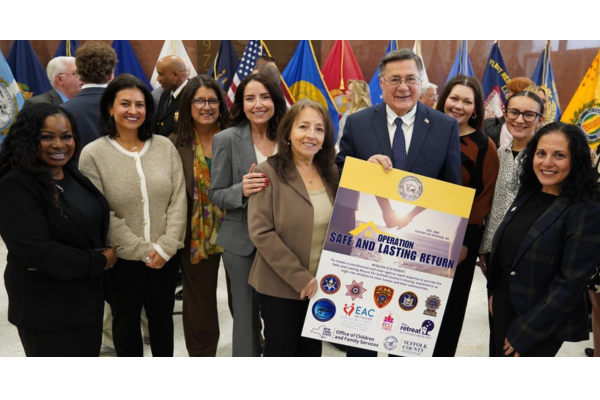The following article appeared on Patch.com, this is the original post.
LONG ISLAND, NY — After a gunman sparked terror in a Brooklyn subway Tuesday, leaving 23 injured, the wider issue of mass shootings is once again in the national spotlight.
Brooklyn subway shooting suspect Frank James was arrested Wednesday and faces a federal terror charge, officials said. James, 62, was the subject of a massive manhunt following Tuesday’s rush hour mass shooting in a Sunset Park subway station, authorities said.
James has nine past arrests, most of which were in New York City, said James Essig, the NYPD’s chief of detectives. Those included four on possession of burglary charge and two on a criminal sex act accusation, he said.
But James is not a felon, which allowed him to buy a GLOCK 9mm handgun in Ohio during 2011, authorities said. That gun was found at the shooting scene, Essig said.
The shooting and arrest have led to discussion about ties between such acts of violence and mental health issues.
In many cases, mass shootings are linked to individuals with histories of domestic violence. Officials have not said James has a history with domestic violence — but the shooting has led to broader discussions about the mass killings.
And, according to a new study by the Johns Hopkins Center for Gun Violence Solutions, in 7 out of 10 mass shootings, the gunman had incidents of domestic violence in the past.
The report, written by Educational Fund to Stop Gun Violence state affairs manager Lisa Geller, is the first to find mass shootings with domestic violence connections have higher fatality rates.
According to the first peer-reviewed research paper exploring the links between domestic violence and mass shootings, more than two-thirds of mass shootings are domestic violence incidents or are perpetrated by shooters with a history of domestic violence.
Geller, also the state affairs manager of the Educational Fund to Stop Gun Violence, analyzed data from the Gun Violence Archive between 2014 and 2019 to reach her conclusions.
“Gun violence has many forms, but it is clear that a history of interpersonal violence should be a deciding factor in whether or not an individual should continue to have access to a gun,” Geller said. “Our study found a clear connection between domestic violence and mass shootings, and we found that mass shootings connected to domestic violence incidents or perpetrated by a shooter with a history of domestic violence have higher fatality rates. While there are several reasons this could be, it’s possible the intent behind the perpetrator of a DV-related mass shooting may be different than a shooter who seemingly targets victims indiscriminately in public places.”
The study also mentions former statistics that indicate that a woman is 400 percent more likely to be killed by an abuser if there is a gun in the house and that 50 percent of all intimate partner homicides include a gun.
Locally on Long Island, domestic violence prevention advocates spoke out on the link between DV and mass killings.
Helen Atkinson-Barnes, education program director at The Retreat in East Hampton, spoke with Patch.
“Mass shooters are perpetrators of violence. Unfortunately, mass shooting events have many similarities to domestic violence incidents. They both function as a way for a person to gain control — sometimes in the form of vengeance or self-aggrandizement for those who feel entitled to power, but who in many instances feel aggrieved and imagine themselves to have been victimized.”
She added that those events “are often one and the same — in a majority of cases a mass shooting is simply an extension of a perpetrator’s targeting of their partner. They seek to harm them with an attitude that proclaims, ‘If I can’t have/own you/do what I want, then no one else can.’ And they make that point by bringing down others in the process, including family, friends, colleagues and even random strangers. The main difference is that mass shootings are highly public events: instead of individuals and their families being terrorized, entire communities are.”
New York State’s gun laws have been an important tool in preventing domestic violence offenders from accessing weapons and the New York State Coalition Against Domestic Violence has lobbied to strengthen them, Atkinson-Barnes said.
“Frequently perpetrators of mass shootings have a history of domestic violence,” she said. With reports of domestic violence reflecting a dramatic uptick during the pandemic, then New York State Gov. Andrew Cuomo announced initiatives to combat domestic violence.
Cuomo called for reforms in regard to abusers’ ability to own guns, proposing the creation of a domestic violence misdemeanor label to close a domestic violence gun-purchasing loophole.
